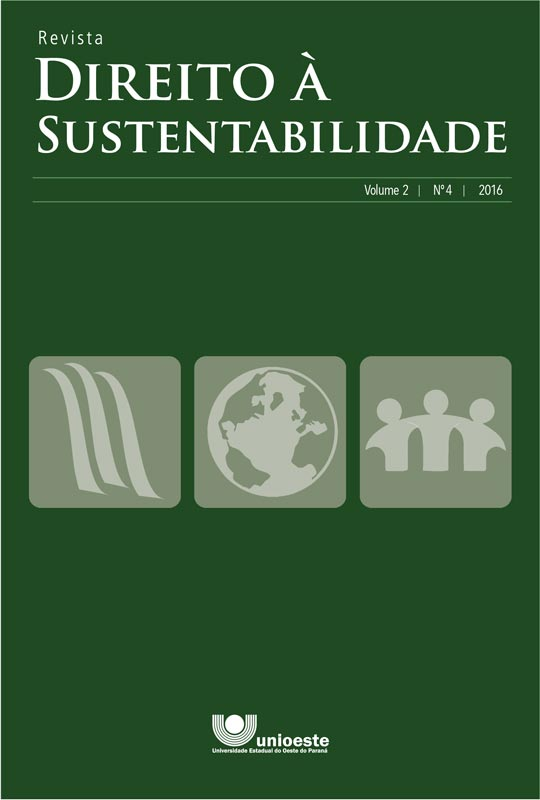CRIMINAL LIABILITY OF THE LEGAL PERSON: ITS RELATION TO THE WATER POLLUTION FRONT TO THE PRINCIPLE OF INTERGENERATIONAL EQUITY
Keywords:
Poluição Hídrica. Princípio da Equidade Intergeracional. Responsabilidade Penal. Pessoa Jurídica.Abstract
It is in vogue the concern about the environment in all of its areas and extensions. However, one of the problems that occasionally remain sublimed is the water pollution, which is sometimes caused by companies. This concern is aggravated when it is noticed that the scarcity of water is widely discussed in states of National prominence, such as São Paulo and Ceara. Hence, the problem has spread nationally, and if the shortage of water exists, to its protection and quality must be given even more emphasis and care. Facing this scenario, therefore, the following question was raised: in what way does the water pollution oppose to the principle of intergenerational equity and how does the Brazilian Procedural Criminal Law refers to the question of the liability of the legal person. The general goal is to enlighten how the question about the water pollution is treated in the Brazilian criminal law scope in regard to the legal person, as well as to conceptualize the principle of intergenerational equity and its relevance to the effective protection of water. This research is justified by its importance, after all, there is a shortage of researches related to the extension that the problem of water pollution can reach, considering that the pollution can, furthermore, be cross-border, jeopardizing thus not only the country responsible for it, but also the whole collectivity, demonstrating that this is a problem worth of discussion, including throughout borders. In relation to the results obtained, it was concluded that the criminal liability of the legal person established under private law relating to cases of water pollution still encounters breeches on the procedural rules and in specific procedures. However, throughout this research, it was understood that this does not figure as a problem, since that the juridical order must be seen as a whole, 58 Revista Direito à Sustentabilidade, Foz do Iguaçu, • v.2 • n.4 • Janeiro/Junho de 2016 being that in it all of the adequate answers to the treatment in question can be found, as long as the differences between the diverse procedural disciplines are observed. It must always be remembered to respect the constitutional principles, such as the intergenerational equity, which was thoroughly analyzed during the course of this article. The methodology applied in the development of this research comprehends the Cartesian method in relation to the data collection and by the end of the article the inductive method with the assistance of the techniques of the referent, the operational category, bibliographical research and book reporting.Downloads
Published
How to Cite
Issue
Section
License
Aviso de Direito Autoral Creative Commons
Política para Periódicos de Acesso Livre
Autores que publicam nesta revista concordam com os seguintes termos:
1. Autores mantém os direitos autorais e concedem à revista o direito de primeira publicação, com o trabalho simultaneamente licenciado sob a Licença Creative Commons Attribution que permite o compartilhamento do trabalho com reconhecimento da autoria e publicação inicial nesta revista.
2. Autores têm autorização para assumir contratos adicionais separadamente, para distribuição não-exclusiva da versão do trabalho publicada nesta revista (ex.: publicar em repositório institucional ou como capítulo de livro), com reconhecimento de autoria e publicação inicial nesta revista.
3. Autores têm permissão e são estimulados a publicar e distribuir seu trabalho online (ex.: em repositórios institucionais ou na sua página pessoal) a qualquer ponto antes ou durante o processo editorial, já que isso pode gerar alterações produtivas, bem como aumentar o impacto e a citação do trabalho publicado (Veja O Efeito do Acesso Livre).
Licença Creative Commons
Esta obra está licenciada com uma Licença Creative Commons Atribuição-NãoComercial-CompartilhaIgual 4.0 Internacional, o que permite compartilhar, copiar, distribuir, exibir, reproduzir, a totalidade ou partes desde que não tenha objetivo comercial e sejam citados os autores e a fonte.


